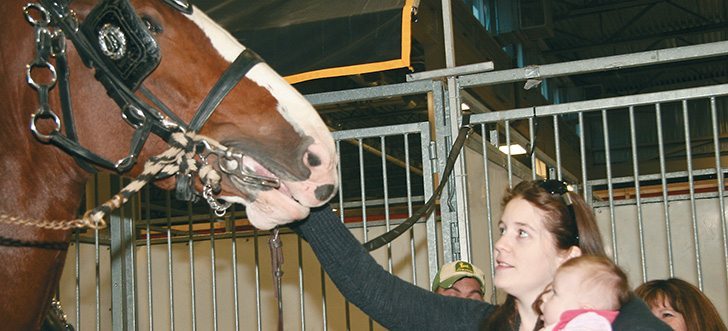LONDON, Ont. — A love of Clydesdales is enough to force one Manitoba family out of bed in the wee hours of the morning to prepare for a horse show.
Boulder Bluff Clydesdales from Strathclair is a fourth generation family of horse lovers who not only like to perform at shows but look forward to the camaraderie of exhibitions.
The Martin family, which comprises Calvin and Jayne Martin and Blaine and Trinda along with their daughters, Britney and Charity, travelled from their farm to the World Clydesdale Show in London with nine horses.
Read Also

Saskatchewan puts crown land auction on hold
Auctions of Saskatchewan crown lease land are once again on hold.
The Sept. 29-Oct. 3 show attracted more than 560 horses.
“It is a lot of work. One day we started showing at 7 a.m. so we were up at 3:30 in the morning,” Calvin Martin said.
The show ran all day.
He has been president of the Clydesdale Horse Association of Canada for a year.
Draft horses such as Clydesdales were once an integral part of the farm before tractors with rubber tires became common. Horses now have new roles for recreation, shows and occasional work.
Breed registrations are steady, said Martin.
“Our membership is holding steady. Our registrations, transfers and exports have been flat for the last three years,” he said.
Members include those who like to keep the horses for pleasure and recreation as well as investors.
“The typical exhibitor would be a family on the farm,” he said.
“It is something the entire family can do together. They can go mix and mingle with their friends and have a good time.”
The Martins breed and sell horses off the farm.
“There are ups and downs. Leading up to a show like this, people are looking for a particular horse they think might win or there are people looking to fill holes in their hitches,” he said.
“There is a lot of interest leading up to the show that everyone wants to do well at.”
A large percentage of their sales used to go to the United States, but the 2008 recession kicked the market back and business slowed.
“Today, the economy in the U.S. is better and our dollar is at a discount to the U.S. dollar, so sales have picked up somewhat,” he said.
















